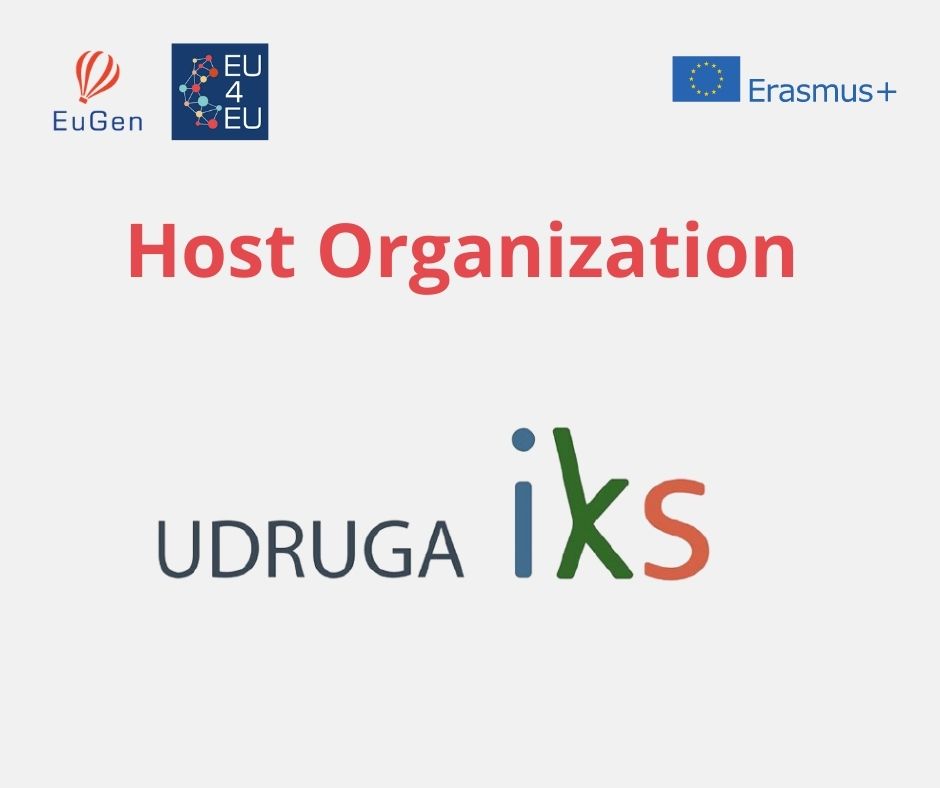10 Mar EU4EU Host Organization experience during Covid: Udruga IKS

Roma, 10 March 2021
Today’s guest is Nadja Matesic, one of the project managers of Udruga IKS, an organization located in Petrinja, a small town in central Croatia that was recently hit by an earthquake. This setback, added to the COVID-19 pandemic, has created an interesting work environment in Udruga, for both the managers and the trainees.
The Association for Promotion of IT, Culture and Coexistence (IKS for short), was established in 2003, by a group of “young enthusiasts who wanted to change the world in a post-war community”, says Nadja. Udruga IKS works in many fields, but mostly on non-formal education and volunteering.
They provide workshops for primary schools, kindergartners and high schools as well as education for adults, especially in the prison system, to help with the integration system. In the same line of work, they have the “puppet studio”, in which they try to employ elderly people from the community and merge them with international volunteers to learn how to make puppets and create puppet plays.
They also work in international exchanges; in particular through the European Solidarity Corps Programme. These are only a few of many projects Udruga IKS is implementing in its community. “We also had a 6.4 earthquake at the end of December that destroyed our community, so this is going to be another layer of our work”, adds Nadja.
“Our interns usually focus more on the community center, local volunteering center, info center and the project management and writing”, she says. When they arrive, they do training and then decide what they are going to work on, depending on their interests. This gives them the opportunity to choose what they want to learn, “using the job shadowing method”, adds Nadja, “which means to observe how people work to learn from them”.
They say to be very satisfied with the EU4EU Programme, because it allows them to filter for trainees who are interested in working in European Projects and solidarity; which means that they end up with “very nice, motivated and responsible young persons who showed a lot of initiative”, she says. In order to find their perfect trainees, “the most important and only criteria is personal motivation”, she says, “as well as an understanding of the situation and an urge to adapt.”
Having motivated trainees has allowed them to manage very interesting projects, such as the “Women empowerment campaign”. “Our two trainees noticed that in our community, the patriarchy is still very much implanted and women are not really informed, so they used the organization’s social media to produce informative material to keep the community engaged”, she explains.
When lockdown started, they began working from home: “This two months process of trying to adapt and search for a solution gave us insight on the holes and loops of our society”, she says. “It also gave the trainees the opportunity to meet the community and their needs”. This allowed the trainees to write a project for European Solidarity Corps Programme “which passed with over 90% of the points”, highlights Nadja, “and right now we are hosting volunteers through this project”.
“We think that the new insight and perception we gain from our interns is very important for our community. They manage to see the different layers and suggest activities that benefit the society”, she concludes.




